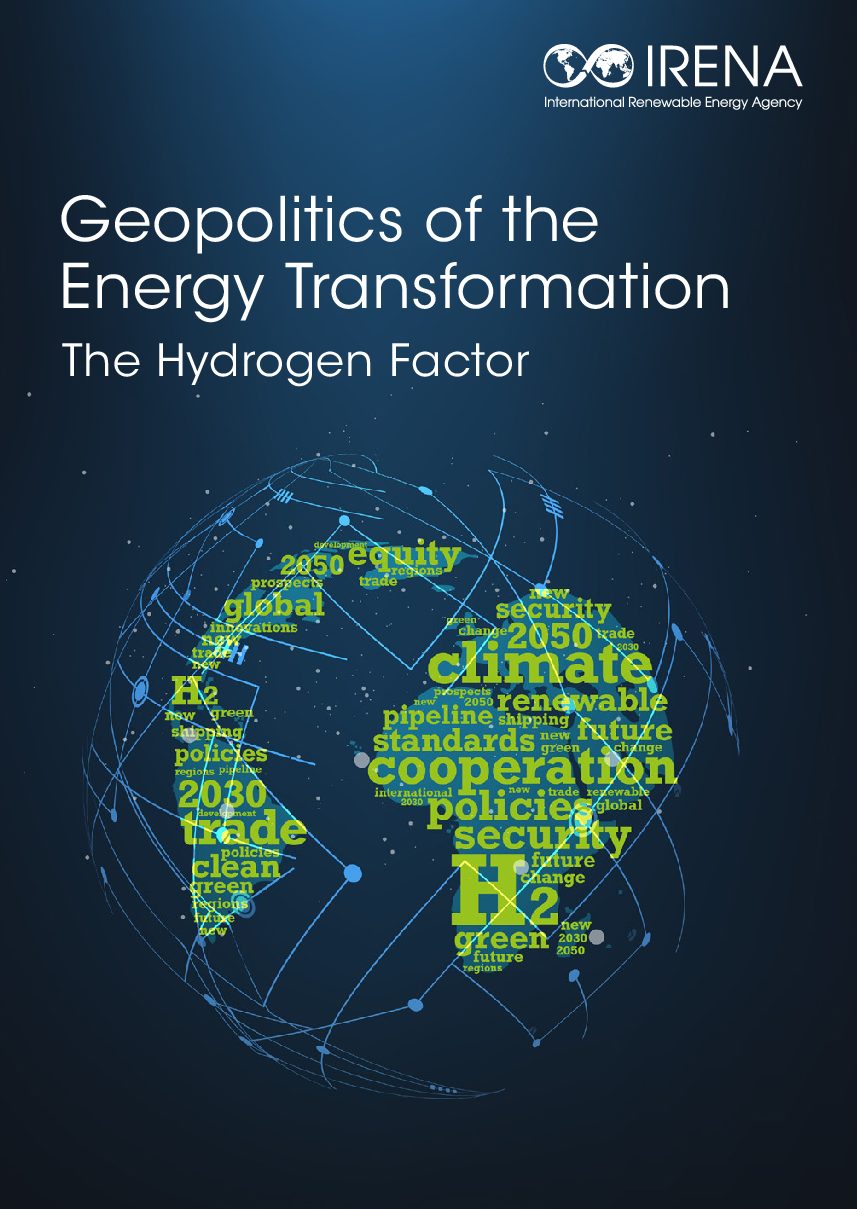
The accelerating deployment of renewables has set in motion a global energy transformation with farreaching geopolitical implications. The report “A New World”, released in 2019 by IRENA’s Global Commission on the Geopolitics of the Energy Transformation, was the first foray into this area. It highlighted how the advent of a new energy age would reshape relations between states and communities and bring about a “new world” of power, security, energy independence and prosperity.
Given the fast pace of change, it is critical to monitor the geopolitical drivers and implications of the transition, stay abreast of developments and play an active role in shaping the future. In 2020, the IRENA Assembly requested the Agency to advance this work under the Collaborative Framework* on the Geopolitics of the Energy Transformation. Hydrogen was identified as a prominent area for further analysis, given the recent surge of interest. Several times in the past, hydrogen attracted much attention but remained a niche in the global energy discourse. Today, the policy focus is unprecendented, given its central role for decarbonisation of harder-to-abate sectors.
There are still many uncertainties about how the hydrogen market will develop, who will emerge as market leaders, and what the geopolitical implications may be. In writing this report, IRENA provides an informed analysis about how these uncertainties could play out. Much will depend on the policy frameworks governments put in place, including the incentives they choose against a backdrop of the social and economic consequences of a global pandemic, the increasingly evident climate impacts and the urgency to decrease the gap between the haves and have-nots.
IRENA’s World Energy Transitions Outlook envisages it could meet up to 12 percent of final energy consumption by 2050. To achieve this, it will be essential to set the priorities right, especially early on, while markets are developing and costs are high. And hydrogen’s positive contribution to climate and development efforts will be ensured only with transparent and credible rules and standards and a coherent system that transcends national, regional and sectoral boundaries. Crucially, with international co-operation, the emerging hydrogen market has the potential to be both decentralised and inclusive, with opportunities for developed and developing countries alike.
We have a long way to go. For example, just as the UN Climate Conference kicked off in Glasgow in October 2021 an energy crisis took hold of global energy markets. The volatility of oil and gas prices triggered a range of emergency measures to reduce the impacts on producers and consumers worldwide. These are a stark reminder of the persistent centrality of fossil fuels to the geopolitics of energy. They also underscore the urgency of the move to resilient energy systems, aligned with the climate and development imperatives set out in the Paris Agreement and the Agenda 2030.
Today, governments have a unique opportunity to shape the advent of hydrogen, by contributing to the design of markets supportive of the energy transformation while avoiding existing limitations and inefficiencies, reducing inequalities, and influencing geopolitical outcomes towards cleaner and fairer energy systems. The challenges are many, but so are the opportunities. I hope that this report will help policy makers and stakeholders effectively navigate the unknowns, mitigate risks and overcome obstacles in the years ahead.
